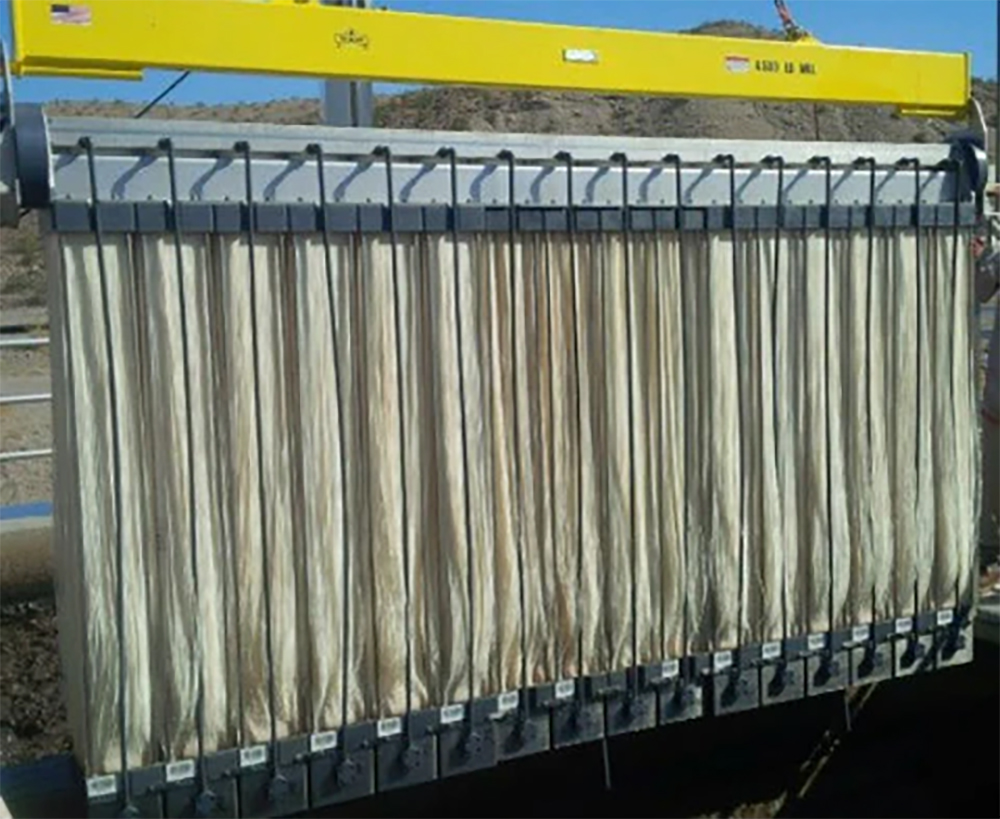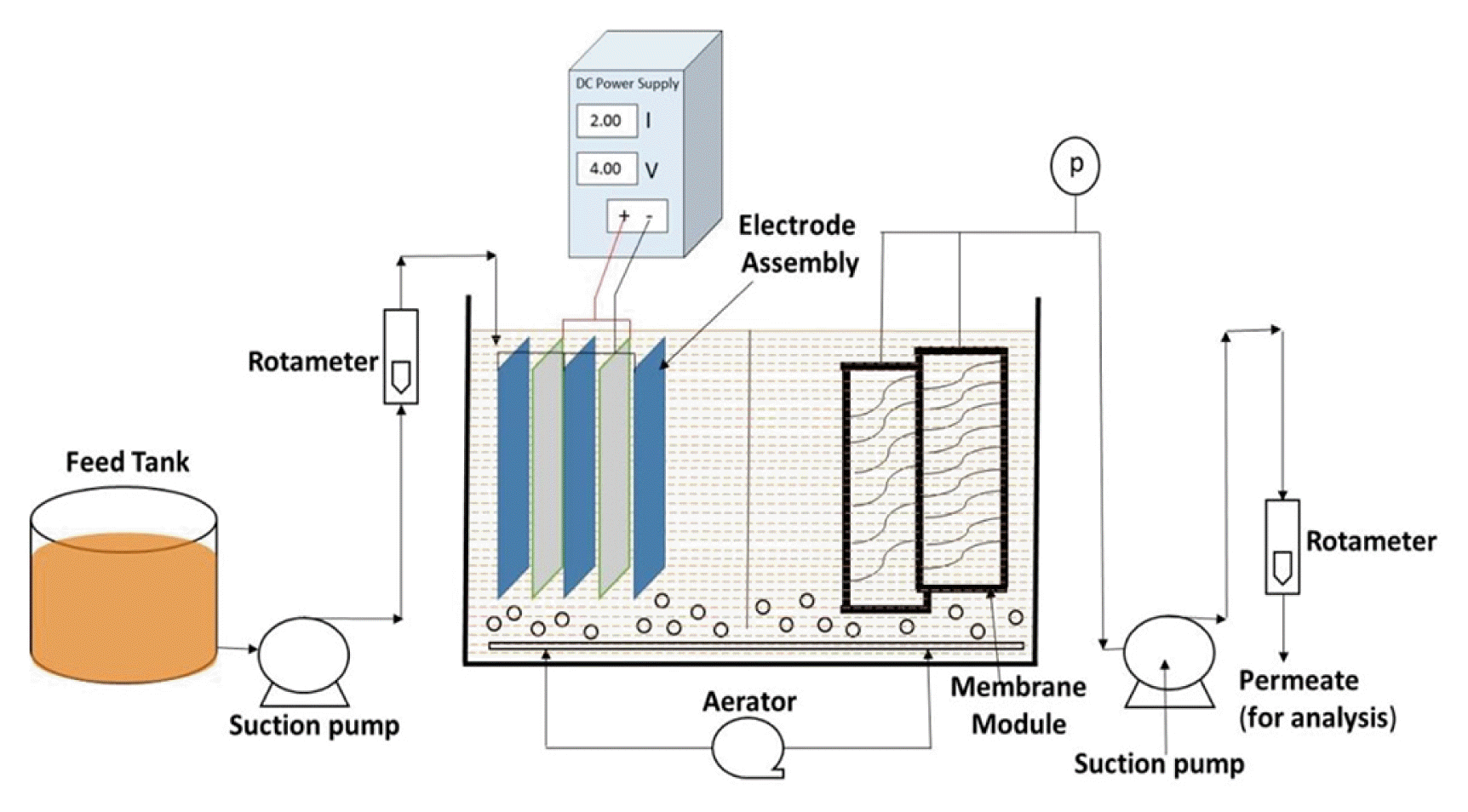How Membrane Bioreactor Contributes to the Reduction of Energy Consumption in Water Treatment
Exactly How Membrane Bioreactors Are Changing Water Filtration Systems
The development of membrane bioreactors (MBRs) represents a significant advancement in the field of water filtration, merging organic therapy procedures with advanced membrane layer filtration technologies. This integration not only enhances the top quality of dealt with effluent but likewise addresses urban space restraints, making MBRs specifically ideal for largely inhabited areas. As worldwide water shortage heightens, the role of MBRs in promoting potable water reuse and sustainable water management becomes increasingly vital. The ramifications of this technology prolong past effectiveness-- what possibilities and obstacles exist in advance for its widespread execution?
Introduction of Membrane Bioreactors
Membrane layer bioreactors (MBRs) stand for a considerable innovation in water filtration modern technology, as they combine biological therapy processes with membrane purification. This combination enhances the effectiveness of wastewater treatment by making use of microorganisms to degrade organic contaminants while concurrently utilizing semi-permeable membranes to separate treated water from put on hold microorganisms and solids.
The MBR system generally contains a biological activator where the microbial population metabolizes pollutants, complied with by a membrane layer filtering system that maintains biomass and permits only tidy water to pass through. This double capability results in greater effluent quality compared to standard therapy approaches. MBRs can be operated in both batch and constant circulation settings, offering adaptability in layout and application.
Furthermore, MBRs are identified by their compact footprint, making them suitable for urban setups with room restrictions. Membrane Bioreactor. They likewise enable the recuperation of water for reuse, hence contributing to water sustainability initiatives. While MBR technology has actually gotten popularity in commercial and community applications, its functional complexities and power needs necessitate cautious consideration throughout application. Generally, MBRs are at the forefront of boosting water therapy effectiveness and quality, showcasing the possibility for cutting-edge services in ecological administration.
Advantages of MBR Modern Technology
The assimilation of biological therapy with membrane layer purification uses countless advantages for water purification procedures. Among the primary advantages of Membrane Bioreactor (MBR) modern technology is its ability to effectively remove both organic and not natural pollutants, bring about top quality effluent. The membrane layers function as a physical barrier, stopping put on hold solids and microorganisms from passing through, which boosts the general safety and security and dependability of cured water.
Additionally, MBR systems require a smaller footprint compared to traditional therapy approaches, permitting a lot more effective room utilization. This portable layout is particularly beneficial in city setups where land is limited. MBRs likewise demonstrate functional adaptability, fitting differing influent high qualities and flow prices without considerable efficiency degradation.
Additionally, the process offers enhanced nutrient removal capacities, specifically for nitrogen and phosphorus, which are critical for stopping eutrophication in receiving waters. The minimized sludge production linked with MBR innovation likewise equates to lower disposal expenses, making it an affordable option in the future - Membrane Bioreactor. Overall, the benefits of MBR modern technology setting it as a leading option for sustainable and innovative water filtration systems, dealing with both environmental and financial problems
Applications in Water Filtration
Applications of Membrane Layer Bioreactor (MBR) modern technology in water purification are impactful and diverse, addressing numerous treatment needs throughout several sectors. MBRs efficiently incorporate biological therapy processes with membrane filtration, making them optimal for local wastewater therapy, industrial effluent monitoring, and also potable water reuse campaigns.
In local settings, MBRs are increasingly utilized to boost the quality of treated wastewater, enabling compliance with strict discharge regulations and promoting the recycling of water for watering and non-potable usages. Their small layout likewise makes them ideal for metropolitan atmospheres where area is limited.
Industrially, MBR modern technology is made use of to treat procedure water and wastewater, particularly in industries such as food and drink, pharmaceuticals, and fabrics. By successfully eliminating pollutants and suspended solids, MBRs aid sectors minimize ecological impacts while recovering beneficial sources from wastewater streams.
Furthermore, MBRs are getting traction in decentralized water therapy applications, where small systems can be released in remote locations or creating regions. This flexibility enables areas to attain sustainable water monitoring services, boosting accessibility to clean water while decreasing reliance on typical therapy techniques.
Study and Success Stories

In one more instance, a fabric production center in Bangladesh took on you can check here MBR modern technology to resolve its wastewater obstacles. The system reduced chemical oxygen need (COD) degrees from 1,200 mg/L to much less than 100 mg/L, thus meeting regulative standards and dramatically decreasing ecological impact.
The University of Cape Town's MBR setup has actually confirmed effective in dealing with greywater for non-potable reuse on school. This task not only conserves potable water however additionally works as an educational design for lasting practices.
Moreover, a seafood handling plant in Norway made use of MBR innovation to treat effluents containing high levels of raw material, achieving over 90% pop over here contaminant elimination. These study emphasize MBR innovation's convenience and its vital role in improving water high quality across diverse applications.
Future of Water Therapy Solutions
As international water scarcity and contamination challenges heighten, ingenious water therapy options are ending up being increasingly crucial to make sure lasting access to tidy water. The future of water therapy exists in the assimilation of advanced innovations that enhance the effectiveness and efficiency of filtration procedures. Membrane bioreactors (MBRs) are at the center of this evolution, combining organic treatment with membrane layer purification to create premium effluent ideal for various applications.

Emerging trends such as resource recovery from wastewater, including nutrients and power, will certainly better change treatment facilities into eco-friendly centers. Additionally, advancements in check out this site nanotechnology and membrane products guarantee improved efficiency and durability of purification systems.

Conclusion
In conclusion, membrane bioreactors represent a considerable development in water filtration innovations, properly integrating organic treatment with innovative membrane filtering. The numerous benefits, consisting of improved effluent high quality and lowered spatial demands, make MBRs particularly ideal for urban applications. Their role in safe and clean water reuse and sustainable water management highlights their value in attending to global water shortage challenges. Continued r & d will certainly additionally boost the efficacy and fostering of MBR innovation, ensuring a resilient future for water therapy services.
The appearance of membrane layer bioreactors (MBRs) represents a significant innovation in the field of water purification, merging biological treatment processes with sophisticated membrane filtration modern technologies. As worldwide water shortage intensifies, the function of MBRs in assisting in safe and clean water reuse and lasting water administration ends up being increasingly crucial. They additionally make it possible for the healing of water for reuse, hence contributing to water sustainability efforts.As global water deficiency and contamination difficulties escalate, cutting-edge water therapy remedies are ending up being significantly necessary to ensure lasting accessibility to tidy water. Their role in potable water reuse and sustainable water monitoring highlights their relevance in dealing with global water deficiency challenges.